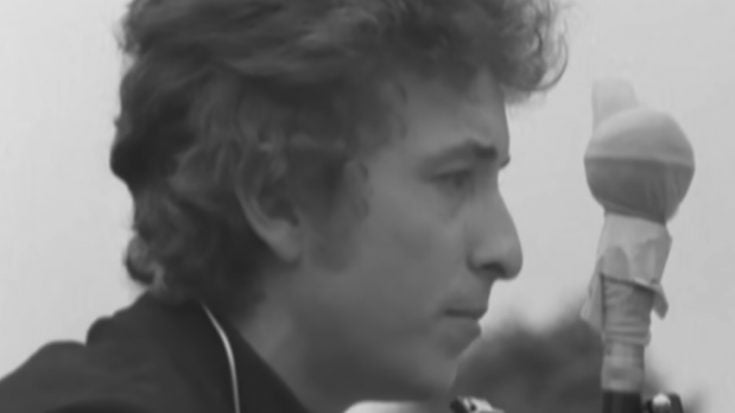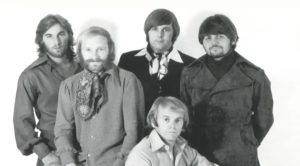The 5 Greatest Songs From Bob Dylan’s ‘Love and Theft’

Bob Dylan live in 1964 - Bob Dylan / Youtube
In 1997, Bob Dylan silenced doubters with the critically acclaimed Time Out of Mind, marking a triumphant return to form after a period of less celebrated work. But Dylan wasn’t done yet.
Four years later, he delivered Love and Theft, proving that his artistic resurgence was no mere blip on the radar. This powerful album, brimming with Dylan’s signature wit and wisdom, solidified his status as a musical legend.
While all 12 tracks on Love and Theft offer a glimpse into Dylan’s unique perspective, some truly shine brighter than the rest. This list dives into the five songs that stand out as the album’s absolute best, each one a testament to Dylan’s enduring musical prowess.
https://twitter.com/BobDylanPics/status/1713077491948986403
5. “Lonesome Day Blues”
A departure from the dark atmosphere of Time Out of Mind, “Lonesome Day Blues” showcases Dylan’s decision to self-produce Love and Theft under the alias Jack Frost. This “less is more” approach allows his exceptional band to take center stage, laying down a raw blues foundation.
In fact, Love and Theft stands as one of Dylan’s most musically energetic albums, and “Lonesome Day Blues” perfectly embodies this shift. The song’s power is evident from the very first note, building anticipation for Dylan’s poignant lyrics, which ultimately elevate it to a standout track.
4. “Summer Days”
Injecting humor into his repertoire, Dylan unleashes his playful side on “Summer Days”, one of the album’s most lighthearted tracks. With lyrics that are both genuinely funny (“Why don’t you break my heart one more time just for good luck?”) and intentionally corny (“Politician’s got on his jogging shoes / He must be running for office, got no time to lose”), Dylan keeps the listener engaged with his quick wit.
The song’s rockabilly rhythm perfectly complements the playful lyrics, forcing Dylan to deliver his lines at a rapid pace to keep up with the energetic tempo. While the song became a fan favorite during live performances, the studio recording holds its own, capturing the same infectious energy and humor.
3. “Sugar Baby”
Serving as the album’s poignant closer, “Sugar Baby” evokes the signature melancholic atmosphere of Time Out of Mind. The song carries a heavy weight throughout, leaving the listener contemplative as the final notes fade. This track exemplifies Dylan’s later work, where his lyrics unfold in a stream-of-consciousness style, seemingly jumping from one thought to another.
Despite the seemingly disjointed narrative, Dylan manages to weave it all together with a deeply affecting chorus, hinting at a final and heartbreaking separation between two individuals once intimately connected.
2. “High Water (For Charley Patton”
Filled with apocalyptic imagery, “High Water (For Charley Patton)” sees Dylan and his band power into a driving bluegrass soundscape. The title serves as a homage to blues legend Charley Patton, hinting at a generational cycle of impending doom.
Dylan seamlessly weaves bluesy language throughout the lyrics, but here they paint a picture of a bleak future. His haunting vocals echo the despair as he sings of a world falling apart, “High water everywhere”. This track perfectly showcases Dylan’s unmatched ability to expose the world’s dark underbelly through song.
1. “Mississippi”
The opening track of Love and Theft, “Mississippi”, showcases Dylan’s profound lyrical depth, where intellectual wordplay beautifully complements raw emotion. The song unfolds as a heartfelt narrative about two troubled lovers grappling with the past and the fleeting nature of time.
Dylan delves into missed opportunities (“So many things that we never will undo”) and expresses appreciation for past connections (“I’ve got nothing but affection for all those who’ve sailed with me”). The ambiguity surrounding his regret about lingering in “Mississippi” keeps the listener engaged, leaving them to ponder whether it’s a minor misstep or a life-altering mistake.
















